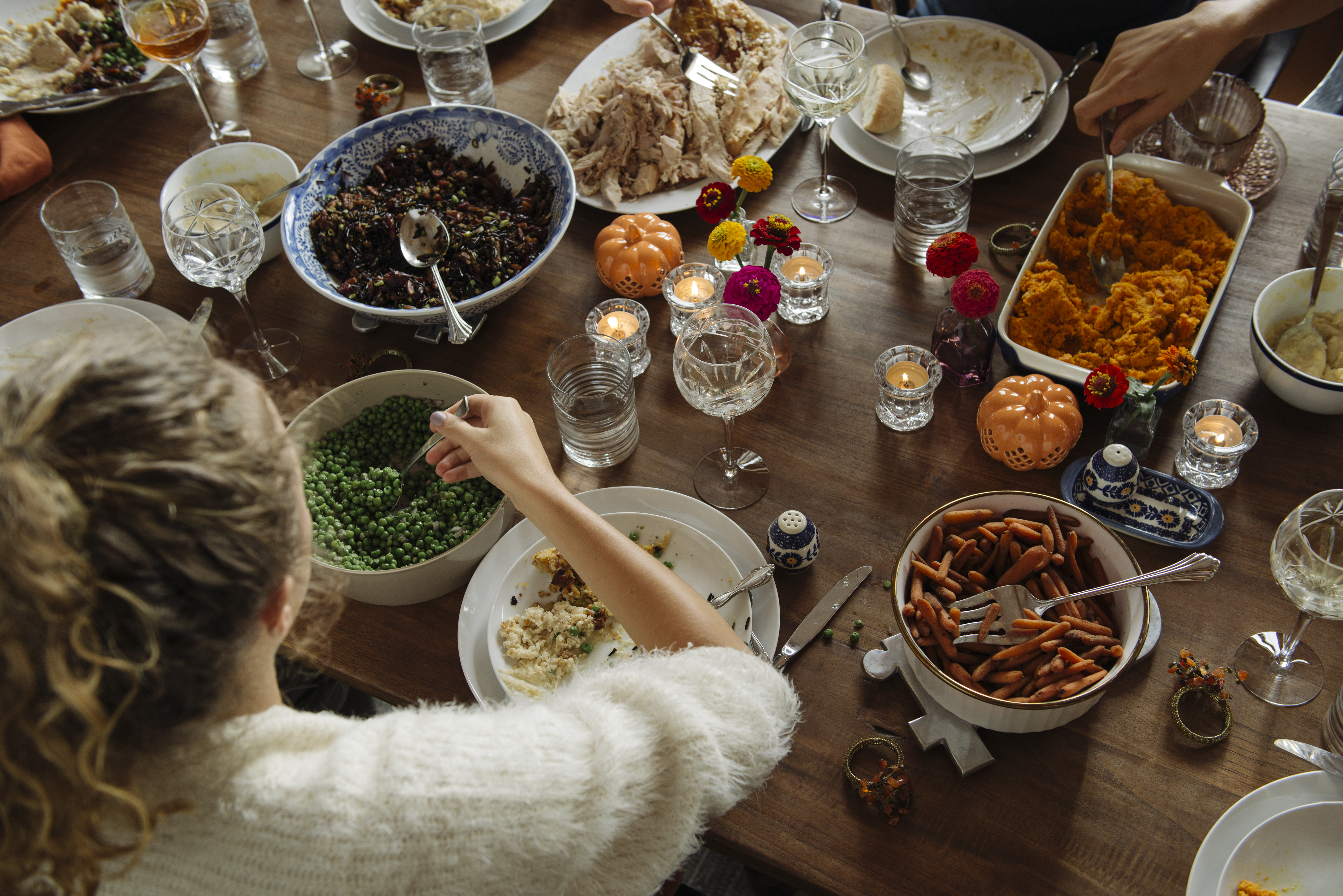For those preparing to gather this Thanksgiving who are also worried about surges in respiratory viruses leading to pediatric hospitalizations, health experts say there are some things you can do to make your gatherings safer.
And one big one might not be what you'd expect.
Hospitals are already reporting a concerning rate of pediatric hospitalizations, with intensive care unit bed capacity dropping well into the single digits. Some health experts fear a post-Thanksgiving surge could make the situation even worse.
"It's only November and RSV has already come and hit us hard. And there's other viruses that don't make the news as much that are also surging right now just because it's respiratory virus season," said Dr. Allison Arwady, commissioner for the Chicago Department of Public Health. "If we see a significant surge, and we will see some surge no doubt about it, of flu and of COVID, on top of that, particularly for kids, you know, we may run out of good hospital capacity."
Feeling out of the loop? We'll catch you up on the Chicago news you need to know. Sign up for the weekly Chicago Catch-Up newsletter here.
One of the ways people can limit risk at holiday gatherings is to use ventilation.
"Anything that you can do around ventilation," Chicago Department of Public Health Commissioner Dr. Allison Arwady said Tuesday. "So having windows open a little bit even at Thanksgiving, if you're going somewhere warmer for Thanksgiving, doing it outside. These are all things that limit the risk not just for COVID, but for all of the other respiratory viruses."
"Ventilation and airflow is one that we've found over the last three years [being] terribly effective in reducing or increasing the risk of disease transmission [and] respiratory viral transmission. So if you're going to be somewhere and you can open windows or open the doors or go outside to have a conversation, [you should]. Fortunately, it sounds like the weather's going to be pretty moderate, for this weekend," Karen Ayala, executive director for the DuPage County Health Department, told NBC Chicago.
Here's what else health experts say you should do to make your gathering safer:
Stay home if you're sick
"If you're not feeling well, that is you know, first and foremost, stay home," Ayala said. "Don't really need to know why or what disease it is, but particularly respiratory diseases. If you're not feeling well today, chances are you won't be feeling well on Thursday. And even if you're feeling better, you'll probably still be symptomatic. So making that decision early on and being able to share that with your potential hosts or your potential visitors would be really very important."
"I tell parents all the time, coughs and snot - those are contagious," said Dr. Carly Senescu, pediatric hospitalist at Edward-Elmhurst Health. "So if your kid is coughing, that's contagious. If your kid is blowing their nose, licking a toy, sharing it with someone, that's all contagious. So whether or not they have a high enough viral load to pass it on is a little bit not as structured as it is for COVID. So I would say it's the same thing. Stay home when you're sick. Stay masked if you have symptoms."
Wear a mask and wash your hands
"If you are someone who is worried, if you have a young child in particular and you're worried about RSV, definitely be washing your hands," Arwady said. "If the kids are able to put a mask on ... if you're having cold-like symptoms, please put a mask on. ... It's about keeping your germs to yourself, regardless of whether it's COVID."
Take a COVID test
While COVID tests remain critical to preventing the spread of COVID, they won't help stop the spread of RSV or the flu.
Get vaccinated and boosted
Health officials are also urging people to get both their flu and bivalent COVID booster shots.
"So we need everybody to get vaccinated, but especially those who are older, and those who are younger, remain at highest risk for respiratory viruses," Arwady said. "It's true that young children, thankfully, are less likely to get seriously ill from COVID. But that is not true for influenza, that is not true for RSV, that is not true for a lot of other respiratory viruses. So getting up to date with all pediatric vaccines, plus those other things that can help generally limit the risk of respiratory diseases is important."
Take extra precautions for those at highest risk
Experts also urge parents to protect those particularly at-risk for viruses like RSV and flu, particularly young children.
"I think that what we're going to see is people being much more in tune with making sure that their company who comes over, their visitors who come over are, you know, if they're coughing a lot, maybe it's time to shorten the visit. If you have a new baby at home, maybe asking people to mask, not letting people pick up the baby or kiss the baby's face," Ayala said.



